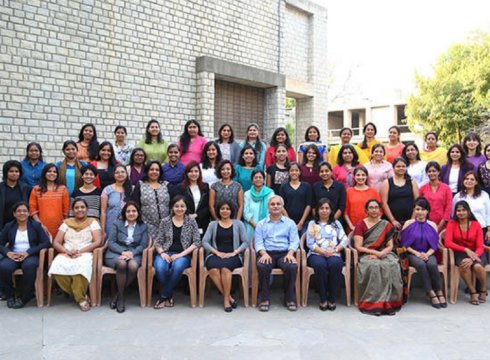Inc42 Daily Brief
Stay Ahead With Daily News & Analysis on India’s Tech & Startup Economy
Before I start this article, I would like to state – “Your entrepreneurial journey is needed. The world needs it.”
I have gone through the Top 50 Women startup programme by NSRCEL, IIMB. This article is going to give insights on the 3-weeks boot camp that I have undergone. Sharing my experiences with the world, it is going to help the first time entrepreneurs – about the management aspects of business.
The programme has taught me steps and principles of the startup world. Together, these steps and principles make up a ‘roadmap’ for finding the optimum path from point A to point B – from the very beginning of the startup process to a sustainable launch.
What, exactly, is point A? – Is it the ‘Idea’ to do a business that stuck to our mind? No, it is the ‘DECISION’ to do the startup and drop everything. ‘DoYourVenture’ – online course by IIMBx was the point A in my startup journey. Every journey starts with a Decision to begin.
Once I have decided, that I want to start my own business, I am at point A – a stage that is potentially life-changing.
During the course some of the professors who taught us were:
- Suresh Bhagavatula– An assistant professor of entrepreneurship and chairperson at NSRCEL, IIMB.
- Nagaraja Prakasam– Angel investor, invested in 16 startups and seen three exits.
- Bringi Dev– Adjunct professor of Business Communication at IIMB.
That first case study which was presented was that of Saumil Majumdar- how his first startup – QSupport took off. His process of analysing that international software business was a supply-constrained business and not demand constrained business, the gap in the market was well analysed by him. His business kicked off very well with the above-said qualities and with the help of his connects by the end of 2002, Saumil sat wondering if he should move on or not.
Many such case studies were presented and discussed in detail. One such case study was that of Abha Chauhan. Her venture PCC in Vizag came into existence in 2002 but she has been involved with other players for 14 years then. She also came to a crossroads now. Should she choose to franchise and grow big or should she choose to remain at the ground level and maintain a personal touch to her venture?
The big question that comes in front of successful entrepreneurs is what next…
Barrier To Effective Communication
The greatest barrier to effective communication is the tendency to evaluate what another person is saying and therefore to misunderstand or to not really “hear.” Checking the natural tendency to judge yields a better understanding of the person with whom you are communicating. A better understanding of the other person’s point of view, in turn, helps you communicate better.
Upward communication is the communication in which the message gets relayed from one person to another at last reaching the top management. This seldom works because the chain is full of bad listeners.
Listening is the only phase of human relations, only one aspect of the administrator’s job, by itself it will solve no major problems. Yet the past experience of many executives and organisations leaves no doubt that better listening can lead to a reduction of the human frictions which beset many businesses today.
On co-founders’ equation and importance in a startup I would like to put forward this question
What your take on the ‘two Steves’ as co-founders?
About The Author
[This post by Khushboo Agarwal first appeared on Medium and has been reproduced with permission.]
Note: We at Inc42 take our ethics very seriously. More information about it can be found here.


